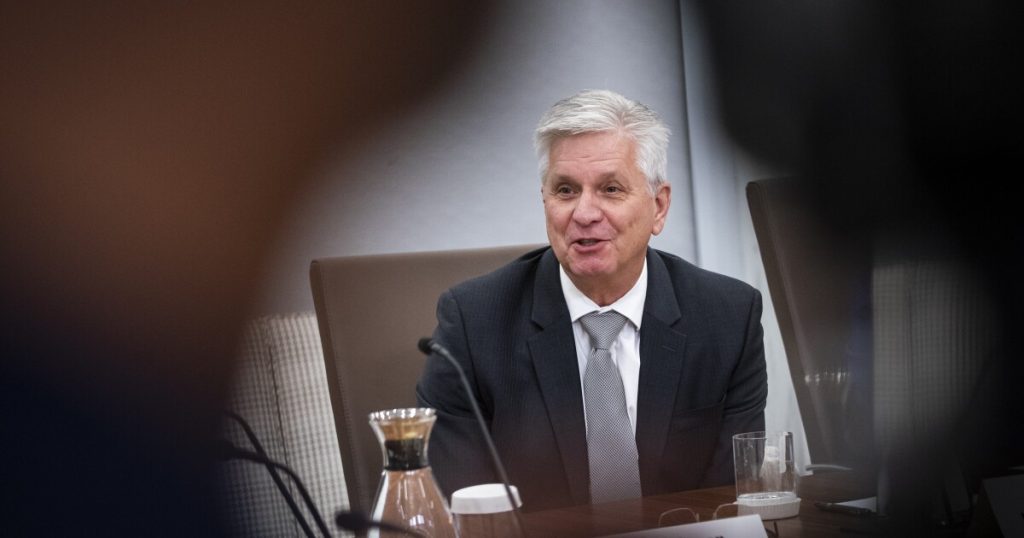Al Drago/Bloomberg
The Federal Reserve is no longer exploring the creation of a central bank digital currency for interbank transactions, according to one of its top payments officials.
In fact, the Fed has removed the term “wholesale CBDC” from its lexicon entirely, Fed Gov. Christopher Waller said in a Thursday afternoon speaking engagement.
“At the Fed, we’ve dropped this whole language of this term ‘wholesale,’ because we have a central bank digital currency, wholesale, which is called bank reserves,” Waller said. “It’s digital, it’s how the banks settle up and pay, and we’ve used it for decades and decades and decades.”
Waller’s remarks came two weeks after President Trump’s
In recent years, the
Waller said the Fed has no intention of creating a direct-to-consumer digital currency — as has been tested in China and several other countries — nor does it intend to create a new form of liability. So, it concluded that getting rid of the term CBDC altogether was in its best interest.
“The better thing to do is think about how you can use technology to improve on the payments, how we do it, how banks can use their reserves to settle in a better way. That would be tokenization or platforms or blockchain. You could think about banks trading reserves in a more efficient way. Certainly, the correspondent banking system can be done better,” Waller said. “But, it doesn’t mean we create a new liability. It’s just how you take existing liabilities, use technology to move money faster and safer.”
Waller’s remarks came during an onstage question and answer session hosted by the Atlantic Council. He discussed a range of topics including digital assets, real-time settlement, global payments systems and the standing of the U.S. dollar.
As he has in the past, Waller discussed the potential efficiency gains of incorporating blockchain technology into the financial system, which he said was “nothing to be afraid of.” He also reiterated his openness to the proliferation of digital assets. In particular, he called stablecoins a “net addition to our payment system.”
Waller said the proliferation of stablecoins, which are digital assets pegged to the value of the U.S. dollar, would bolster the dollar’s standing as the world’s reserve currency by driving up demand for Treasury securities among issuers. But, he noted, for this to happen,
“You might want to have regulatory rails around it to make sure the money is there, it doesn’t break the buck, who’s authorizing, who’s checking to make sure it’s fully backed — we don’t have that stuff and we need it if we want to have the option to do this,” he said. “This seems to be a bipartisan issue, there’s legislation currently being talked about … I think it’s clear people see this as something to go forward with.”
On the topic of dollar primacy more broadly, Waller said he is not concerned about the currency losing its global status, despite
Waller said the benefits of the dollar are self-evident, which is why foreign businesses choose to use it for cross-border transactions. He said the depth of the U.S. Treasuries market and the rule of law have made the dollar a trusted settlement currency for years.
“It would have to be the case that somebody would wake up one day and say there’s somebody else offering that better than us,” he said. “I don’t see that happening any time soon.”

